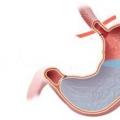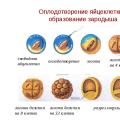Direction of training: Design and technological support of machine-building industries
Profile: Technologies, equipment and automation of machine-building industries
Qualification (degree): bachelor
Form of study:
- full-time education in the "PLANT-VTUZ" system (5 years);
- extramural training (5 years).
Contact phone number of the selection committee: (8184) 53 – 95 – 79; +7 921 070 88 45
Graduating department:
(8184) 53 – 95 – 69
general characteristics
All the mechanisms that surround us - from food processors to robots, cars and submarines - are made up of simple and complex parts. The manufacture of these parts today requires knowledge of both traditional and high technologies. You will be able to obtain such knowledge during training in the direction of preparation 15.03.05 (151900.62) "Design and technological support of machine-building industries" in the profile "Technologies, equipment and automation of machine-building industries."
Today, the specifics of the work of a process engineer in modern production is changing dramatically. The spread of computer-controlled automated equipment, the emergence of computer-aided design and production control systems in almost all machine and shipbuilding enterprises has led to the fact that a modern technologist is an engineer who creates new equipment based on fundamental technical education and widely using computer technology.
The profession of a process engineer is more relevant than ever: production is being restored, and where they start to produce something, a person who knows how to do it is immediately needed, i.e. a process engineer. To ensure the competitiveness of their products, enterprises today need specialists who are engaged in the development of new technologies. This means that large funds are allocated to attract such specialists and a decent amount of payment for their intellectual work is offered.
Acquired professional skills are connected with the study of the laws operating in the manufacture of machines for their use in the production of new parts and machines of a given quality based on the use of computer technology and computer-aided design systems.
Graduates have knowledge in the field of:
- creation of new and application of modern production processes and technologies, design methods, mathematical, physical and computer modeling;
- new forms of organization and management of production;
- integrated automation of production processes, modern machine tools with numerical control and robotic systems;
- progressive methods of processing materials;
- use of computer technology for research, design and control of technological processes.
The graduating department - the Department of Metal Technology and Mechanical Engineering of the Institute of Shipbuilding and Marine Arctic Technology (Sevmashvtuz) has been training engineers since 1966. Today, the department has two doctors of technical sciences, five candidates of technical sciences, senior lecturers. The fruitful work of the department is impossible without talented and hardworking staff. Currently, the laboratory and material and technical base of the department is being actively modernized in accordance with the modern requirements of high-tech industries.
Upon completion of training, a graduate who has successfully passed the final state certification, along with the qualification (degree) "bachelor", is awarded the special title "bachelor-engineer".
Region professional activity graduate is implementation the latest technologies metal processing; selection of modern equipment; solution technical problems manufacture of complex engineering products; design of modern machines, mechanisms and technological equipment.
Graduate career prospects:
Our graduates work as design engineers in various design and engineering organizations and departments of enterprises, process engineers for metal processing, software engineers for modern machine tools with numerical control, engineers for labor rationing and work planning, operators of modern technological complexes, employees of research departments and laboratories for the study of metal processing technologies, production foremen and heads of sections and shops of leading shipbuilding and machine-building enterprises not only in our city, but throughout Russia.
Additional features:
Social guarantees and scholarships; the possibility of international internships; participation in scientific and sports events; rich student life; opportunities for the implementation of an active social position.
Direction code: 15.03.05 Educational standard: Federal State Educational Standard Level of education: Bachelor's degree Description:
The machine-building complex is an industry that ensures the country's defense capability, an industry that provides equipment for all other industrial complexes, an industry that is the backbone of the state's economy. The spread of automated equipment, CNC machines, the development of CAD contributed to a change in the requirements for the qualification of young specialists in modern production. The manufacture of any mechanism - be it a food processor or a sports car, a combat aircraft or a children's toy - today requires knowledge of both traditional and the latest technologies. This knowledge is obtained by students studying in the direction of preparation "Design and technological support of machine-building industries".
 Our graduates for 4 years receive in-depth training in natural sciences and engineering disciplines, become "on you" with modern CAD and CAM systems, without which modern production is unthinkable. The acquired knowledge allows them to occupy various positions in production. For instance, design engineer engaged in the design of technological equipment for automated production or the design of modern cutting tools. Or process engineer, a person without whom machine-building production is impossible, whose work consists in designing a technological process of processing - a "recipe" for manufacturing, so to speak - and subsequent control over its execution. Someone prefers the position CNC programmer, and by machine tools here one should understand modern processing centers that “can do everything”, and 3D printers, and laser equipment! Some work as engineers in planning and dispatching services, and some work as CNC machine tool adjusters.
Our graduates for 4 years receive in-depth training in natural sciences and engineering disciplines, become "on you" with modern CAD and CAM systems, without which modern production is unthinkable. The acquired knowledge allows them to occupy various positions in production. For instance, design engineer engaged in the design of technological equipment for automated production or the design of modern cutting tools. Or process engineer, a person without whom machine-building production is impossible, whose work consists in designing a technological process of processing - a "recipe" for manufacturing, so to speak - and subsequent control over its execution. Someone prefers the position CNC programmer, and by machine tools here one should understand modern processing centers that “can do everything”, and 3D printers, and laser equipment! Some work as engineers in planning and dispatching services, and some work as CNC machine tool adjusters.
 Our graduates are in demand- this is important when choosing a future profession! After graduating from AltSTU, they successfully work in small and large enterprises throughout Russia, such as OJSC Rostselmash, OJSC NAPO im. V.P. Chkalov JSC, JSC Altaivagon, JSC Altai Instrument-Making Plant Rotor, JSC HK Barnaul Machine-Tool Plant, JSC Barnaul Cartridge Plant, JSC Barnaultransmash, CJSC Altai Plant of Precision Products, JSC Sibenergomash, CJSC "Rubtsovsky Spare Parts Plant", LLC "Forging and Pressing Equipment Plant", OJSC "Biysk Production Association "Sibpribormash" and many others.
Our graduates are in demand- this is important when choosing a future profession! After graduating from AltSTU, they successfully work in small and large enterprises throughout Russia, such as OJSC Rostselmash, OJSC NAPO im. V.P. Chkalov JSC, JSC Altaivagon, JSC Altai Instrument-Making Plant Rotor, JSC HK Barnaul Machine-Tool Plant, JSC Barnaul Cartridge Plant, JSC Barnaultransmash, CJSC Altai Plant of Precision Products, JSC Sibenergomash, CJSC "Rubtsovsky Spare Parts Plant", LLC "Forging and Pressing Equipment Plant", OJSC "Biysk Production Association "Sibpribormash" and many others.
In the course of their studies, students undergo internships at these enterprises, and upon completion they are hired. Already working, many continue their studies in the magistracy in the same area of training, improving and gaining new knowledge necessary in the work.
- manage the work of a team of performers;
- evaluate the economic efficiency of production activities;
– design and technological:
- develop technological processes;
- design products.
A bachelor graduate can work in the following positions:
- process engineer with the prospect of growth to the chief technologist;
- design engineer with the prospect of growth to the chief designer;
- foremen with the prospect of growth to the head of the site, workshop, production, chief engineer;
- manager of existing productions;
- tool and equipment sales manager;
- in the services of computer design and production management with growth to the head;
- director of his own company.
Upon graduation, all graduates are offered employment at the request of enterprises with decent wages. The number of applications from enterprises for graduates of the department significantly exceeds the number of graduates. Our graduates work in key positions in enterprises in various regions of Russia and abroad:
- Chelyabinsk: CJSC Elektromashina, LLC Chelyabinsk Tractor Plant-Uraltrak, PG Metran, OJSC Stankomash, CJSC Plastic, VGUP Signal, OJSC Chelyabinsk Pipe Rolling Plant, OJSC Chelyabinsk Forging and Pressing Plant ”, OJSC Trubodetal, OJSC Chelyabinsk Automechanical Plant, OJSC Chelyabinsk Plant Teplopribor, CJSC PG Metran, State Unitary Enterprise Chelyabinsk Plant Pribor, OJSC Chelyabinsk Radio Plant Polet, OJSC Chelyabinsk Tool Plant, ZAO PLASTIK, OAO Chelyabinsk Electric Locomotive Repair Plant
- Chelyabinsk Region: Federal Rocket Center (Miass), Federal Nuclear Center (Snezhinsk), Instrument-Making Plant (Trekhgorny), OJSC Troitsky ZAO Electromechanical Plant, OJSC Kopeysk Machine-Building Plant
- Regions of Russia: Federal State Unitary Enterprise Production Association "October" (Kamensk-Uralsky, Sverdlovsk Region), OJSC "Rusich" KZKT - Kurgan Plant of Wheel Tractors, Rostselmash (Rostov-on-Don), LLC "Scientific and Engineering Company" ( Zhukovsky, Moscow region)
- Abroad: WEMA GLAUCHAU (Freiburg, Germany), Microsoft (Newton, USA), etc.,
- and also organize their own business in the engineering industry and other areas.
Undergraduate students study the following subjects:
- engineering technology;
- computer product design and technological processes;
- designing control programs for machine tools with numerical control;
- economic issues of enterprise management;
- automation of machine-building productions;
- robotic flexible production systems;
- Accounting;
- jurisprudence;
- internships: familiarization, production and pre-diploma at large factories in Russia and enterprises of the Ural region (JSC "Eletromashina", JSC "Trubodetal" and many others);
- computer training is carried out during the entire period of study.
Duration of study in the bachelor's degree is 4 years when studying full-time and 5 years when studying at the correspondence department (Correspondence Faculty of Engineering and Economics)
Admission conditions - exams (USE): Russian, mathematics, physics (major - mathematics).
The most common entrance exams are:
- Russian language
- Mathematics (profile) - profile subject, at the choice of the university
- Physics - at the choice of the university
- Informatics and information and communication technologies (ICT) - at the choice of the university
Engineering technology is a scientific field that studies the process of manufacturing products, taking into account relevant quality standards. The goal of this industry is to optimize time and resources while maintaining high product performance. Qualified personnel of a given direction design, manufacture and repair high-quality equipment, as well as provide effective management of technological processes at enterprises. Technical professions are always in demand, and many graduates who are well versed in the exact sciences strive to enter the specialty 15.03.05 "Design and technological support of machine-building industries."
Admission conditions
In order to clearly understand what exams you need to take for admission to this department, you need to decide on the university. As a rule, most educational institutions require the delivery of subjects such as:
- mathematics (profile level),
- Russian language,
- physics or computer science and ICT.
In rare cases, educational institutions replace physics and computer science with chemistry and foreign language. Therefore, check all the necessary information in advance on the official websites of universities.
Future profession
Undergraduate students learn to perform production and technological work, which consists in the manufacture of mechanical engineering parts, their quality control and the management of modern devices used in production. In addition, they are taught the rules of working with personnel and the conditions for effective organization of labor at the enterprise. Students also learn the skills of improving technological processes and the basics of designing new products.
Where to apply
Today, one can master a specialty not only in the universities of Moscow, but also in educational institutions largest cities in the country. When choosing educational institution It is worth paying special attention to the statistics of academic performance at the faculty. Moreover, it is necessary to carefully study the teaching staff. If you want to get a quality education, we advise you to take note of the following universities:
Training period
Full-time bachelor's degree involves 4 years of study, part-time - 5 years.
Disciplines included in the course of study
The main subjects in educational program directions are:
- machine parts and design principles,
- descriptive geometry and engineering graphics,
- Materials Science,
- machine building equipment,
- processes and operations of shaping,
- theory of automatic control,
- theory of mechanisms and machines,
- technological processes in mechanical engineering,
- engineering technology,
- electrical and Electronics.
Acquired Skills
As a result of mastering the specialty, graduates of the department acquire the following skills and abilities:

Employment prospects by profession
Whom to go to work after university? Upon graduation, graduates can get jobs such as:
- engineer,
- design engineer,
- software engineer,
- process engineer,
- design engineer,
- Foreman.
Experts in this area are in demand at absolutely all enterprises whose activities are related to mechanical engineering and the use of high-tech devices. As a rule, they have no problems finding a job: employers are looking for worthy candidates even in the process of studying students.
The above specialties are in great demand in the labor market and at the same time are highly paid. Even young specialists can count on a salary of 45,000 rubles, while experienced craftsmen receive a salary of at least 100,000 rubles.
Benefits of applying to a master's program
To deepen their knowledge and hone their skills, many students decide to continue their education in a master's program, which gives them a number of advantages:
- Opportunity for rapid career growth. Many young undergraduates immediately occupy leading positions and soon become leaders.
- Improving your knowledge in the field of design and development of new engineering objects.
- Obtaining an education that meets world standards, the opportunity to find high paying job Abroad.
- Perfect command of one foreign language.
- Chance to get the position of senior engineer of the enterprise in a short time.




